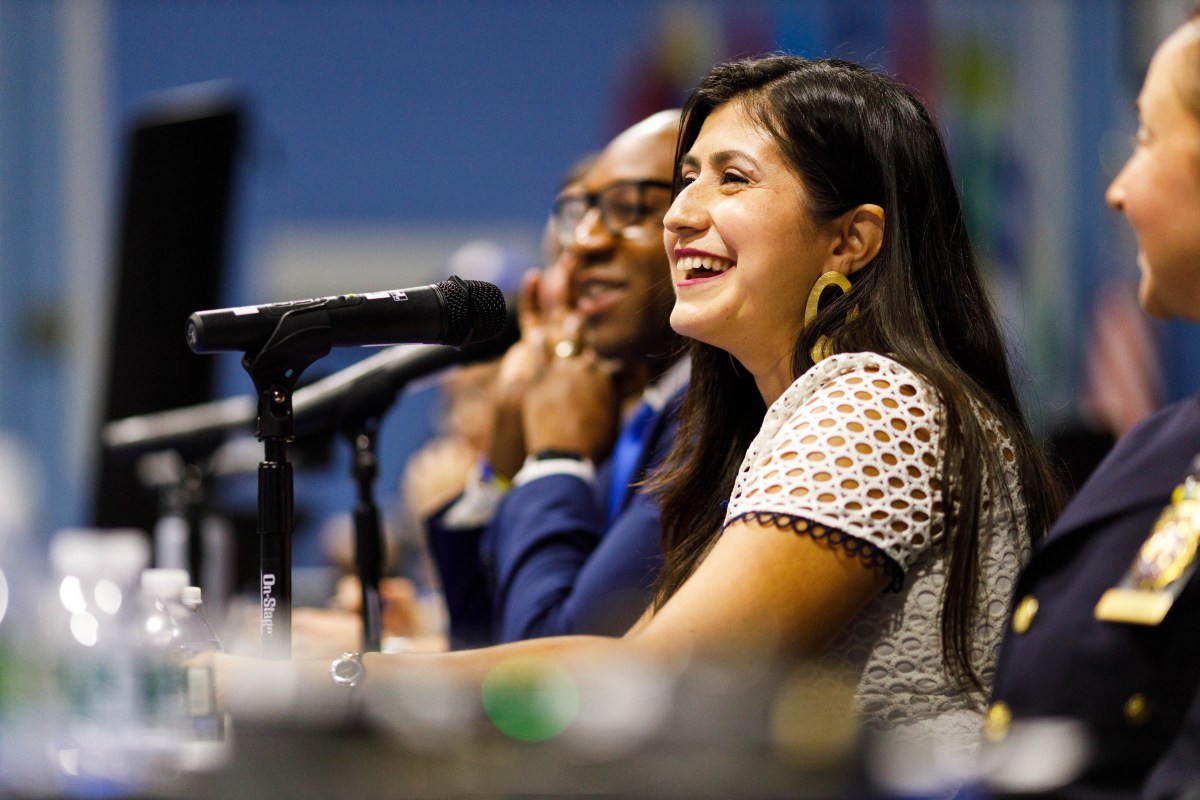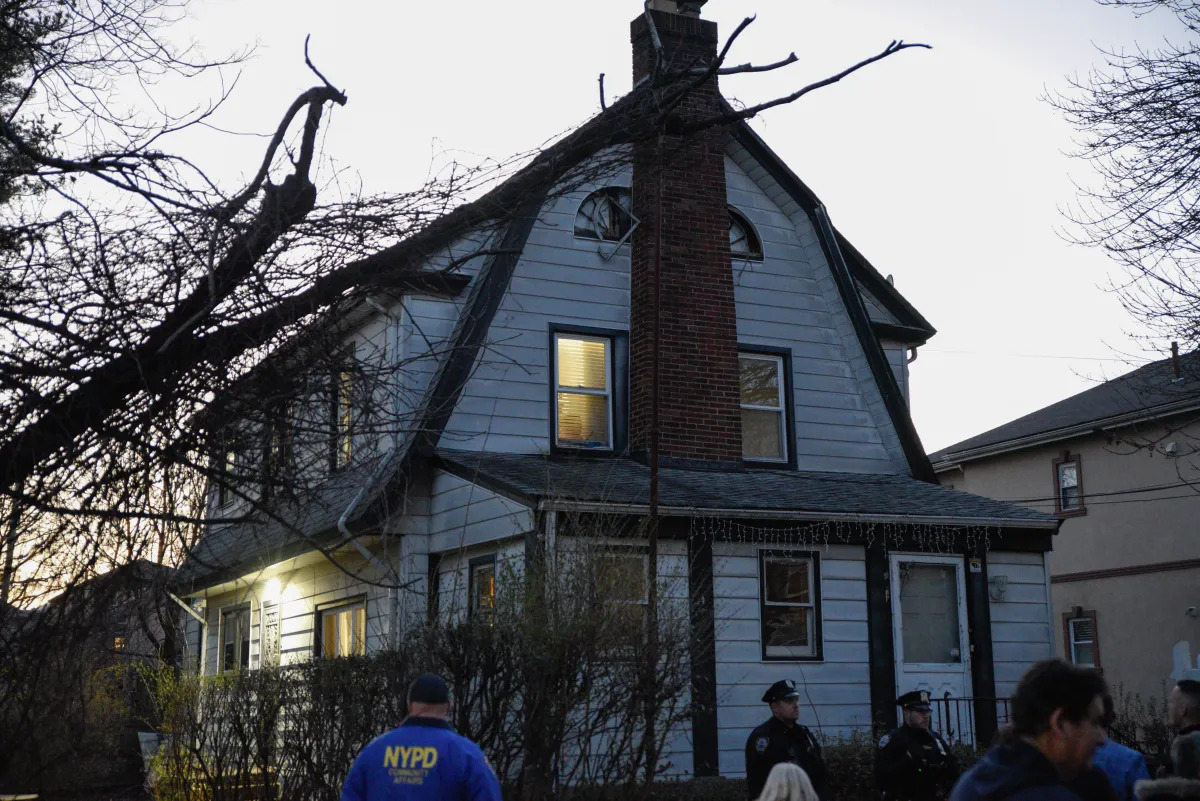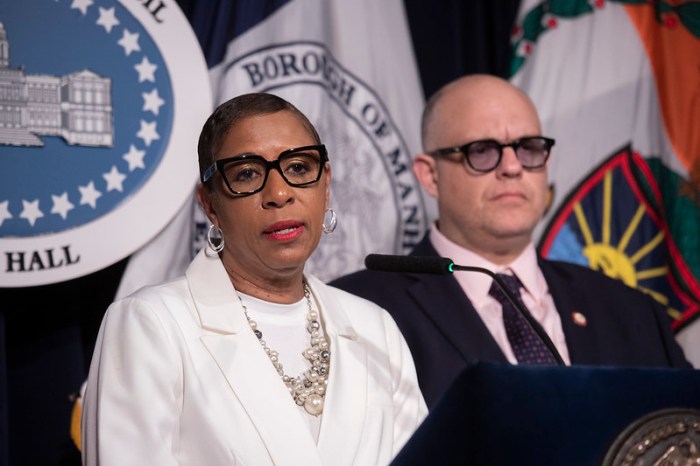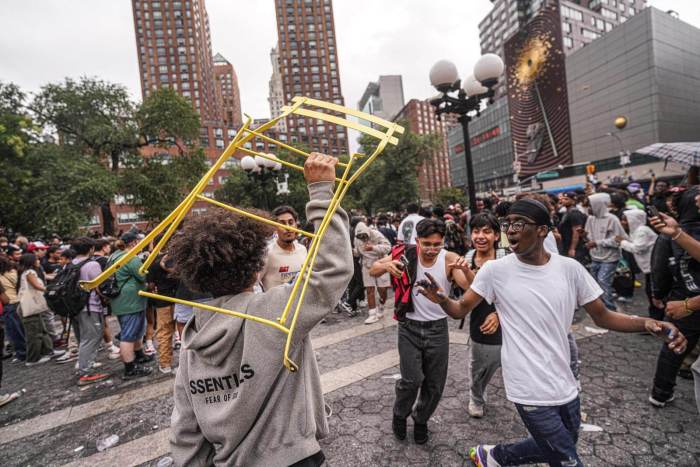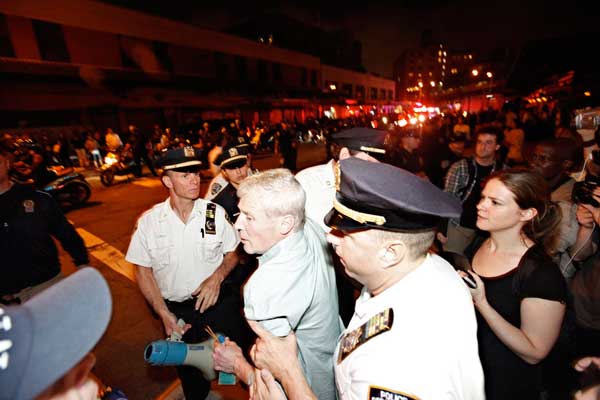
BY SAM SPOKONY | The lawyer for an Occupy Wall Street protester arrested in the Meatpacking District in June believes the city is scared to take his client to trial, because, the lawyer contends, the protester caught police violating a longstanding policy banning officers from photographing peaceful political demonstrations.
Jack Boyle, 57, was charged with two counts of disorderly conduct on the night of June 13, during a hundreds-strong O.W.S. rally to protest the nation’s high rate of student loan debt. He was arrested at the corner of Washington and W. 13th Sts. for refusing to disperse while blocking the sidewalk, according to the arresting police officer cited in Manhattan Criminal Court documents.
But Paul Mills, Boyle’s lawyer — and an outspoken legal advocate for O.W.S. activists in many previous high-profile cases — has claimed that Boyle was arrested on “false charges.” Mills asserted that, rather, his client had simply been scolding New York Police Department officers who were allegedly taking photographs of the peaceful demonstration without approval, thus violating the so-called Handschu agreement.
Mills further claimed that photos taken during Boyle’s arrest show that while the activist was standing on the sidewalk, he was not blocking it or doing anything unlawful at the time.
The Handschu agreement stems from a class action lawsuit and 1985 federal court ruling in favor of political activist and lawyer Barbara Handschu, which found that N.Y.P.D. surveillance of political activity violated constitutional protections of free speech.
That ruling led to N.Y.P.D. Interim Order 22, a department policy that prohibits indiscriminate police videotaping and photographing of political demonstrations when there is no indication that unlawful activity is occurring. Instead, the order states that officers wishing to videotape or photograph any such event must gain clearance from within the department by supplying valid reasons to suspect that unlawful activity is likely to take place or is taking place.
Mills claimed that Boyle’s June arrest was above all an attempt by authorities to sweep those alleged policy violations under the rug. But he stressed that his client refuses to back down, even though the Manhattan District Attorney’s Office tried to offer Boyle a plea deal at a Nov. 21 court date — the day on which his trial was supposed to begin.
“This is what these trials are all about,” Mills said. “Police and prosecutors trying to intimidate protesters, to silence them. But Jack Boyle isn’t afraid. They are.”
The N.Y.P.D. didn’t respond to a request for comment.
While declining to directly address Mills’s claims about prosecutors’ roles in attempting to cover up the alleged Handschu violation, the D.A.’s office seems unfazed by those claims.
In essence, it hasn’t actually been unusual for prosecutors to offer O.W.S. activists “adjournment in contemplation of dismissal” (A.C.D.) deals rather than trying to take the cases to trial. The deal Boyle refused on Nov. 21 involved taking an A.C.D., which would have allowed his charges to be dismissed after six months, as long as he was not arrested again within that period of time.
A spokesperson for the D.A.’s office pointed out that, of more than 2,250 O.W.S.-related arrests in Manhattan since the “99 percent” movement began in September 2011, only 43 cases have gone to trial as of this Monday. In those relatively few trial cases, activists have not fared well — 39 out of the 43 trials have resulted in convictions.
In addition to asserting his client’s innocence, Mills took another shot at the D.A.’s office by saying that the prosecutor who handled Boyle’s Nov. 21 court date was uncharacteristically “puzzled” when the defense attorney asked why the city was not ready to schedule a trial date, and was instead offering the A.C.D.
“They’re supposed to have an answer, and they always do, but not this time,” Mills said. “In this case, it was like that person was being asked a question they really didn’t want to be asked, and they had to just finesse their way out of it.”
Boyle’s trial is now scheduled to begin on Dec. 19. If convicted of the two counts of disorderly conduct, he faces two weeks in jail and a fine.
Boyle previously gained notoriety as part of the O.W.S. Duarte Square case, in which he and seven other activists were convicted in June of misdemeanor trespassing charges, stemming from their attempt to a break into a lot owned by Trinity Real Estate last December. Over the course of that case, Boyle also refused to take an A.C.D. plea deal offered by the D.A.’s office.
The activist, who is H.I.V. positive, went on a hunger strike and refused to take his prescribed H.I.V. medication while awaiting the Duarte Square trial, in order to protest Trinity’s decision to press charges against the occupiers.
Mills said if Boyle is found not guilty in his current trial, he would likely sue the city, but added that he believes the activist would not be interested in reaping personal gain from that effort.
“He would be filing suit for a violation of his First Amendment rights, the rights that allow him to stand on a sidewalk and talk to a police officer,” Mills explained. “And he could demand that they either admit their wrongdoing and apologize, or pay him money. But I don’t think he’s concerned about money, and I think he would accept an apology.”










